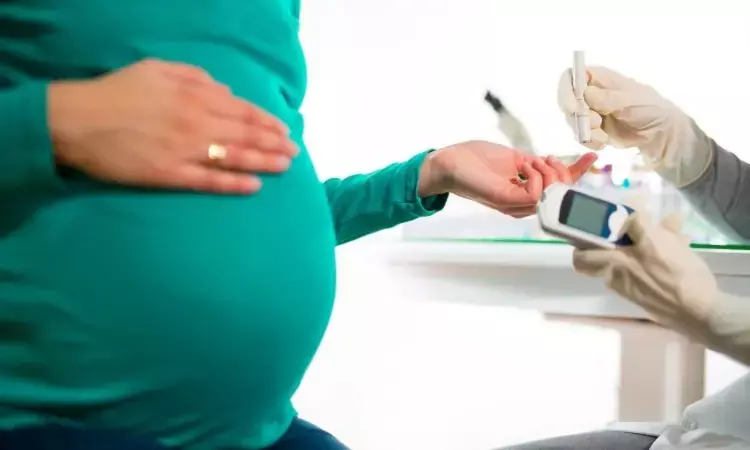- Home
- Medical news & Guidelines
- Anesthesiology
- Cardiology and CTVS
- Critical Care
- Dentistry
- Dermatology
- Diabetes and Endocrinology
- ENT
- Gastroenterology
- Medicine
- Nephrology
- Neurology
- Obstretics-Gynaecology
- Oncology
- Ophthalmology
- Orthopaedics
- Pediatrics-Neonatology
- Psychiatry
- Pulmonology
- Radiology
- Surgery
- Urology
- Laboratory Medicine
- Diet
- Nursing
- Paramedical
- Physiotherapy
- Health news
- Fact Check
- Bone Health Fact Check
- Brain Health Fact Check
- Cancer Related Fact Check
- Child Care Fact Check
- Dental and oral health fact check
- Diabetes and metabolic health fact check
- Diet and Nutrition Fact Check
- Eye and ENT Care Fact Check
- Fitness fact check
- Gut health fact check
- Heart health fact check
- Kidney health fact check
- Medical education fact check
- Men's health fact check
- Respiratory fact check
- Skin and hair care fact check
- Vaccine and Immunization fact check
- Women's health fact check
- AYUSH
- State News
- Andaman and Nicobar Islands
- Andhra Pradesh
- Arunachal Pradesh
- Assam
- Bihar
- Chandigarh
- Chattisgarh
- Dadra and Nagar Haveli
- Daman and Diu
- Delhi
- Goa
- Gujarat
- Haryana
- Himachal Pradesh
- Jammu & Kashmir
- Jharkhand
- Karnataka
- Kerala
- Ladakh
- Lakshadweep
- Madhya Pradesh
- Maharashtra
- Manipur
- Meghalaya
- Mizoram
- Nagaland
- Odisha
- Puducherry
- Punjab
- Rajasthan
- Sikkim
- Tamil Nadu
- Telangana
- Tripura
- Uttar Pradesh
- Uttrakhand
- West Bengal
- Medical Education
- Industry
Treatment of gestational diabetes early in second trimester improves neonatal outcomes: NEJM

Australia: Treating gestational diabetes immediately before 20 weeks' gestation improved neonatal outcomes, TOBOGM randomized trial has revealed.
Immediate treatment significantly reduced the composite incidence of adverse neonatal outcomes -- shoulder dystocia, stillbirth or neonatal death, phototherapy, respiratory distress, high birth weight, birth trauma, or preterm birth -- to a rate of 24.9% compared with 30.5% in those whose treatment depended on confirmation as usual after repeat oral glucose tolerance test (OGTT) at 24 to 28 weeks of gestation. However, no material differences were observed for neonatal lean body mass or pregnancy-related hypertension.
The findings appeared in the New England Journal of Medicine. They were presented at the International DIP Symposium on Diabetes, Hypertension, Metabolic Syndrome & Pregnancy: Innovative Approaches in Maternal Offspring Health in Thessaloniki, Greece.
David Simmons, Western Sydney University, Australia, and colleagues aimed to determine whether treatment of gestational diabetes before 20 weeks' gestation improves infant and maternal health.
The study involved women between 4 weeks' and 19 weeks six days' gestation who had a risk factor for hyperglycemia, and gestational diabetes diagnosis was included. Eight hundred two individuals were randomly assigned in a ratio of 1:1 to receive immediate treatment for gestational diabetes or no treatment or deferred, depending on the findings of a repeat OGTT at 24 to 28 weeks gestation.
Primary outcomes were a composite of adverse neonatal outcomes (birth at <37 weeks' gestation, birth weight of ≥4500 g, birth trauma, phototherapy, respiratory distress, shoulder dystocia, neonatal death or stillbirth), neonatal lean body mass, and pregnancy-related hypertension (gestational hypertension, eclampsia, or preeclampsia), and neonatal lean body mass.
The study led to the following findings:
- Eight hundred two women underwent randomization; 406 were allocated to the immediate-treatment group and 396 to the control group; follow-up data were available for 793 women. At a mean gestation of 15.6 weeks, an initial OGTT was performed.
- An adverse neonatal outcome event occurred in 24.9% of women in the immediate-treatment group and 30.5% in the control group (adjusted risk difference, −5.6 percentage points).
- Pregnancy-related hypertension occurred in 10.6% of women in the immediate-treatment group and 9.9% in the control group (adjusted risk difference, 0.7 percentage points).
- In the immediate-treatment group, the mean neonatal lean body mass was 2.86 g; in the control group, it was 2.91 g (adjusted mean difference, −0.04 g).
- No between-group differences were observed concerning severe adverse events associated with treatment and screening.
"Gestational diabetes' immediate treatment before 20 weeks' gestation versus no immediate treatment led to a modestly lower incidence of a composite of adverse neonatal outcomes," the researchers conclude. "No material differences were seen for neonatal lean body mass or pregnancy-related hypertension."
Reference:
The study titled "Treatment of Gestational Diabetes Mellitus Diagnosed Early in Pregnancy" was published in the New England Journal of Medicine. DOI: 10.1056/NEJMoa2214956
Dr Kamal Kant Kohli-MBBS, DTCD- a chest specialist with more than 30 years of practice and a flair for writing clinical articles, Dr Kamal Kant Kohli joined Medical Dialogues as a Chief Editor of Medical News. Besides writing articles, as an editor, he proofreads and verifies all the medical content published on Medical Dialogues including those coming from journals, studies,medical conferences,guidelines etc. Email: drkohli@medicaldialogues.in. Contact no. 011-43720751


